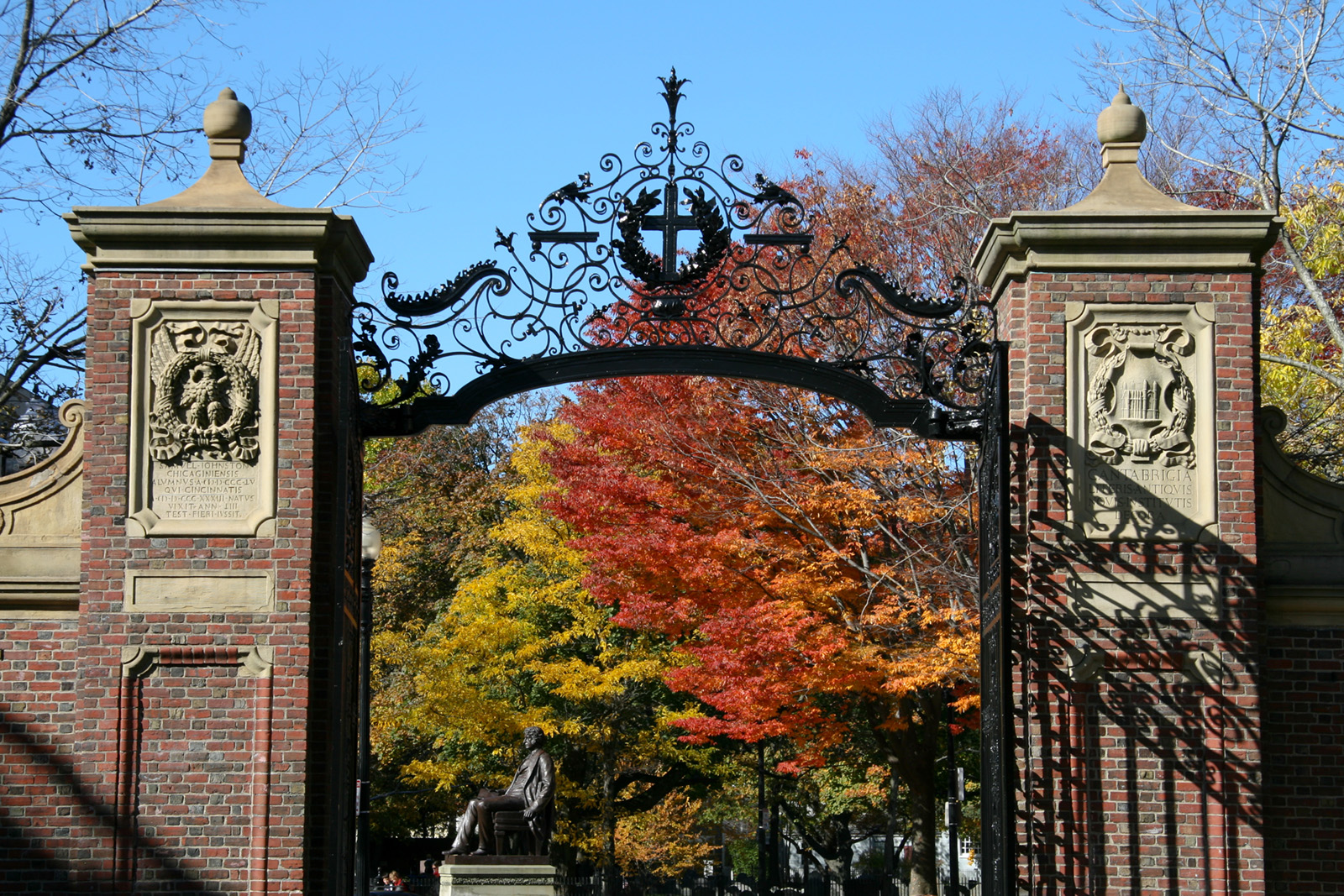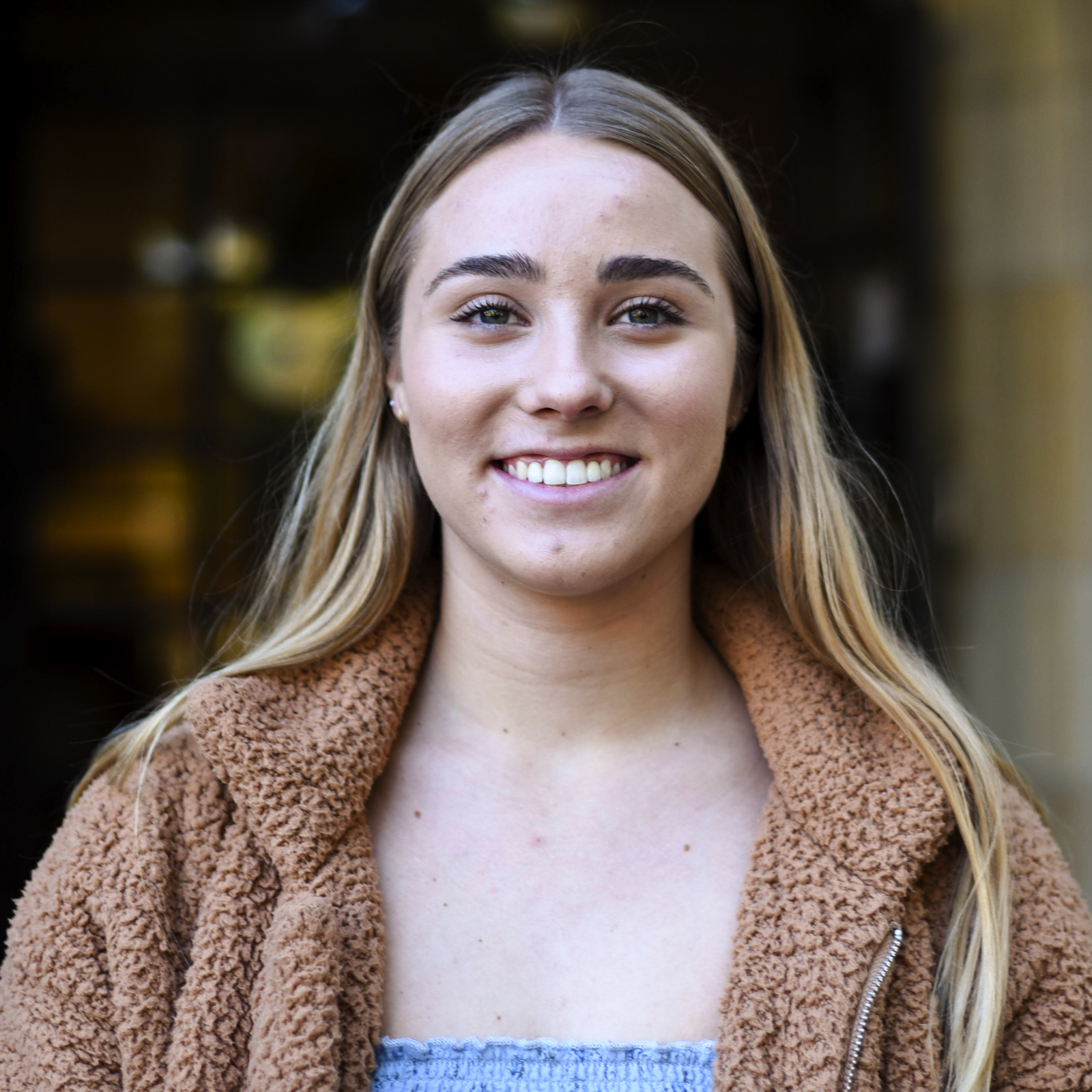UCLA community members consider ramifications of Harvard admissions lawsuit

The gates to Harvard. UCLA alumni and faculty said they think Harvard’s ongoing federal case concerning affirmative action in admissions will have a national impact. (Courtesy of Sackton)
This post was updated Nov. 3 at 8:42 p.m.
Members of the UCLA community said they think an ongoing federal case in Boston concerning affirmative action and college admissions could have consequences on race relations in America.
Students for Fair Admission, a group headed by Edward Blum, is suing Harvard University for discriminating against Asian-American applicants in favor of other minorities through affirmative action. Currently, Harvard has an acceptance rate that hovers at 5 percent.
Blum previously took affirmative action all the way to the Supreme Court, in 2016. The plaintiff, Abigail Fisher, was not found to have been at any disadvantage compared to black and Latino applicants at her school of choice, the University of Texas at Austin.
Some critics claim Blum is using Asians to bring the controversial issue to the Supreme Court again.
The discussion surrounding affirmative action could change a decades-old national precedent set in a case against UC Davis and the Board of Regents.
In 1978, the Supreme Court decided in Regents v. Bakke that the race quotas UC Davis used at the time violated the 14th Amendment, which made it illegal for schools using federal funds to discriminate by race. The court noted using race as a factor would be allowed to create a diverse educational environment.
However, California Proposition 209, which passed in 1996, bars the University of California system and any public employer in California from using race or gender in admissions and hiring practices.
Karen Umemoto, endowed director of the UCLA Asian American Studies Center and a professor of urban planning and Asian American studies, said she thinks while no Asians should be discriminated against, the lawsuit could be dangerous because it supports the political platform of erasing ethnicity from college admissions.
She said she thinks affirmative action promotes social mobility by allowing college graduates to create better futures for themselves and their families.
“We are all opposed to discrimination against Asian-Americans in college admissions. Where (people) differ is the strategy that we should take to address that possible problem,” she said. “The current efforts backed by Edward Blum against Harvard is not the way (I feel) was prudent or effective.”
Umemoto said she believes Students for Fair Admissions should not pit Asians against other minorities, and should instead focus on how legacy students and athletes have a significantly higher acceptance rate to schools like Harvard despite having lower test scores. She added that oftentimes legacy students come from elite backgrounds, and limiting the number of students from less advantaged backgrounds prevents them from achieving social mobility.
“I think the holistic review process that considers race and ethnicity is a small step toward addressing the problem of underrepresentation of historically disadvantaged groups,” she said. “I don’t think it’s enough, but it’s better than not having race and ethnicity considered at all,” she said.
Youlonda Copeland-Morgan, vice provost of enrollment management for UCLA Student Affairs, said UCLA’s undergraduate admissions uses a holistic review process, which many elite universities also say they use, but is legally barred by California law to use race or gender in admissions.
“We want students to focus on presenting a strong and compelling application that reflects their academic strength, leadership and their passion,” she said. “Those are the things that are important in the admissions process.”
She added UCLA takes into account students’ opportunities and backgrounds by realizing disparities in education access in different communities.
“We know that there are correlations in students who are low-income, first-generation, from rural communities, American Indian, and other factors, and we know what those correlations are,” she said.
Copeland-Morgan added the admissions office has relationships with different schools, including those that are poorly resourced, and uses its knowledge of each school’s situation to determine what resources were available to students.
“While we cannot consider race and gender, we know which schools have 22 (Advanced Placement) courses and which have overcrowded classrooms and understaffing,” she said.
At a panel event hosted by the Asian Pacific Alumni of UCLA on Oct. 23, UCLA experts, including Umemoto, addressed why some Asians, who are also a minority group, are now arguing against affirmative action.
Jerry Kang, UCLA’s vice chancellor of equity, diversity and inclusion, introduced the event as a time to think about different ways to prevent Asian-Americans from feeling discriminated against in the college application process.
Eugene Volokh, a distinguished professor of law and the moderator of the panel, said an important point of contention in the affirmative action debate is whether a university should reflect the population it serves – for example, whether the UC system should reflect the population of California.
Lee Cheng, secretary of the Asian American Legal Foundation, said he thinks schools should not try to rate personality because it is subjective, and that the trial has revealed Harvard sees Asians as less personable. He added he is most frustrated by how opaque many elite schools are about how admissions decisions are made until trials like these occur.
Copeland-Morgan said that as a public institution serving California, the UC system is transparent about what it looks for in freshman and transfer students, including 14 points on its website.
Nicole Gon Ochi, a supervising attorney for Asian Americans Advancing Justice-LA, said she thinks universities and Americans should stop looking at Asians as a monolith when it comes to economic and educational backgrounds.
“I represent many low-income (Asian) students testifying in the Harvard trial who benefited from race-conscious admissions,” she said.
Umemoto said she thinks a better solution to possible discrimination against Asians is to investigate Harvard’s admission practices rather than make the entire case about affirmative action. She added the Department of Education conducted this kind of investigation in 1990 to see whether universities used race quotas, which are not legal.
Ochi agreed the Harvard case should not have focused on attacking affirmative action, but also said she thinks it is not enough to address socioeconomic disparities.
“Affirmative action is a sad and paltry remedy for the structural racism that has existed in this country since its founding,” she said. “I think that one of the harms of affirmative action was that it made people think that it was enough, while not working on the structural racism.”



